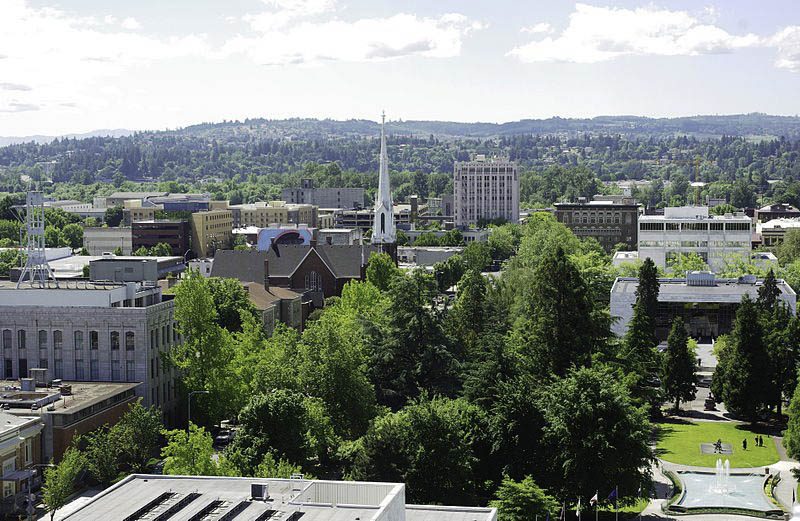Home » Cost Guides » Oregon Cost Guides » How Much Does it Cost to Build a House in Salem, Oregon?
Salem officially became the capital of Oregon in 1851, after it was founded in 1842. It was historically recognized for its agricultural productivity, making Salem the official location for the Oregon State Fair. Due to the overwhelming local cherry industry, it was not long after that Salem became known as the “Cherry City.” In 1903, the very first cherry festival happened until it ended due to World War I.
The city’s agricultural celebrations didn’t end there. Currently, a Salem Saturday Market happens annually from May through October. Visitors and locals will find products from produce to craft items. Other celebrations include a Holiday Gift Market in December and the World Beat Festival in June. The grandest event in Salem occurs from the end of August up to Labor Day, which is the Oregon State Fair. This fair is located at Oregon State Fairgrounds in North Salem with exhibits, rides, and local competitions.
Besides the annual festivities at Salem, people flock to the city for the scenic and peaceful views everywhere. It’s surely a different environment compared to the nearby bigger cities like Portland. As of 2022, it’s home to an estimated population of 180,013 residents.
The Cost of Building a Home in Salem
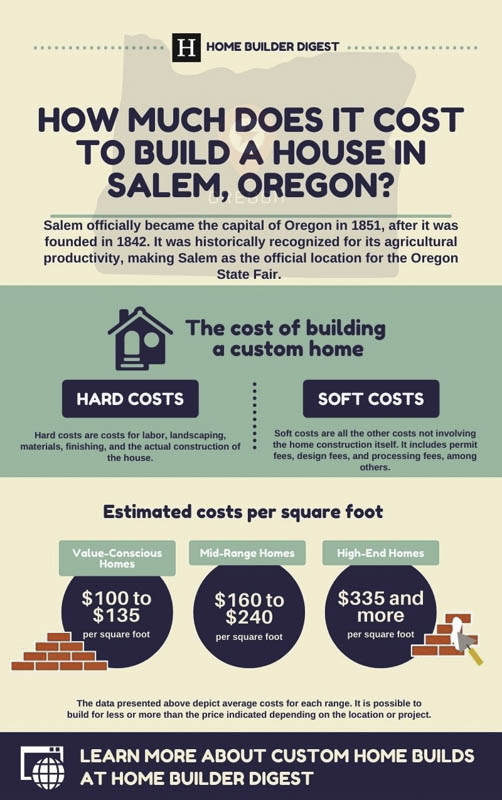
Salem is the ideal home for families who are looking for affordable homes. There are several neighborhoods that offer lower-priced homes, like Jan Ree, Northstar, Santana Village, and Homestead. There are also luxury gated communities, including Croisan Mountain, Circuit Rider, and Forest Heights. Growing families who are seeking to move here can be assured that the metro area has a major hospital and some shopping centers for basic needs. The educational institutions situated in Salem are Willamette University, Corban University, and Chemeketa Community College.
Home building costs at Salem can cost an average of $196,068.64. A customized home in Salem can range from $109.31 to $162.30 per square foot, while the state’s average is $135.93 per square foot. The spending for home building mostly depends on the house size, labor, materials, and finishings.
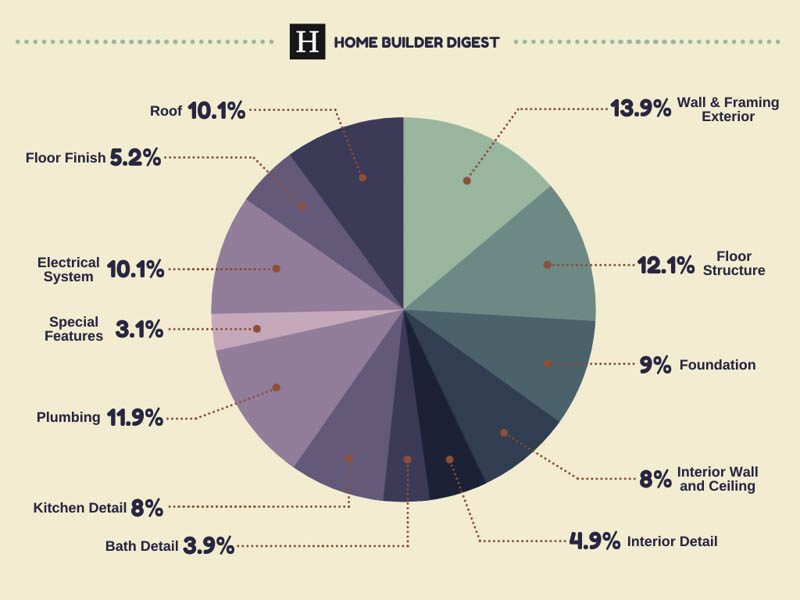
Figure 1. Typical cost breakdown of a single-family home constructed using the conventional method, according to Home Builder Digest.
Home building costs are determined by labor, location, resources, and customization — as decided by the homeowner. Most people would think that costs are only based on the price of the land or the materials to be used for construction, but there is added spending on top of that. The total costs are divided into hard costs and soft costs.
Hard Costs
Hard costs are costs for labor, landscaping, materials, finishing, and the actual construction of the house. The average cost for a 1,973.55-square-foot house in Salem was $196,068.64 or $99.29 per square foot. For the construction of value-conscious homes, it can cost about $100 to $135, while mid-range homes are from $160 to $240 and luxury homes are at $335 and above.
Meanwhile, the hard costs for the rest of Oregon range from $175,000 to $470,000, or an average of $135.93 per square foot. The costs for the house construction itself are relatively lower in Salem compared to other locations in the state.
The site work cost is estimated to be at least 3 to 8% of the total construction budget, while labor costs are at 30 to 60%, and material costs are over 50%. The cost for interior finishes usually depends on the homeowner’s preferences, but it can range from 25 to 35% of the total costs. Roofing expenses are also based on the type of roof chosen, but an asphalt shingle roof installation can cost $231.84 per 100-square-foot with standard quality. If a tile roof style is chosen, it is inevitably more expensive and can cost an average of $1,076.40 per 100-square-foot.
Meanwhile, the cost for concrete foundation installation in Salem is $6.74 per square foot for a 4-inch reinforced slab on grade. The framing costs for a house can depend on the construction location, but they can be anywhere from $7 to $16 per square foot, based on the national average.
Soft Costs
Soft costs are all the other costs not involving the home construction itself. This includes permit fees, design fees, and processing fees, among others. These costs are allocated for anything before and after the construction and are not directly related to the actual home construction.
Cost of the Land
An average lot for sale in Salem is priced at $166,263.71 for a median size of 9,629.20 square feet based on fourteen listings on Zillow. On Redfin, land prices in Salem average at $159,633.33 for an average lot size of 6,969.33 square feet, based on three listings.
Permits and Other Fees
The total costs for permits and other fees are typically based on the overall value of the home construction. The basic rule is that the higher the construction value, the higher the fees go. The total costs for permit fees at Salem are averaging $35,356.45 based on the BuildZoom database for new single-family dwellings from 2020 to 2022. There is also an additional processing fee of $12.50 per license or permit.
The building permit fee is based on the total valuation of the project and follows the rating below:
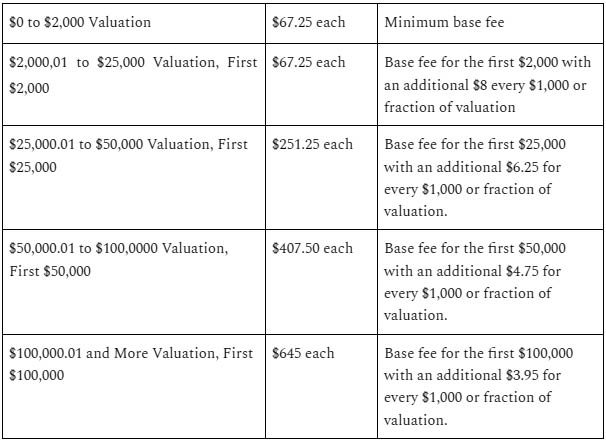
The City of Salem requires a review of plans with a corresponding fee based on the time spent reviewing the home construction plan. Any additional building plan review will be charged $67.25 per hour. A minimum of one hour is required for the revisions to the construction documents. Other plan review fees include the following:
- Same-day plan review – $150 per hour
- Building permit extension – $67.25 each
- Building plan review fee – 65% each percent of building permit fee
- City of Salem Master Plan Initial Plan Review – 65% each percent of permit fee
- City of Salem Master Plan Setup Fee 1 and 2 Family – $130 each
The City of Salem also regulates fees for customization of house construction. There are additional fees for specific amenities such as these listed below:
- Barbecue – $20.75 Each
- Boiler (city gas connection and venting) – $20.75 Each
- Clothes Dryer – $20.75 Each
- Fireplace, Insert or Stove – $20.75 Each
- Fuel Piping – $20.75 Each
- Furnace Forced Air – $20.75 Each
- Heater – $20.75 Each
- Log or Log Lighter – $20.75 Each
- Range – $20.75 Each
- Water Heater – $20.75 Each
Heating and Air Conditioning
- Air Conditioner or Evaporative Cooler (there’s an additional fee if air handling unit is utilized) – $20.75 Each
- Air Handling Unit – $20.75 Each
- Decorative Fireplace – $20.75 Each
- Furnace (including ductwork, vent, and liner) – $20.75 Each
- Heat Pump – $20.75 Each
- Water Heater – $20.75 Each
- Hydronic Piping – $20.75 Each
- Pool or Spa Heater, Kiln – $20.75 Each
- Wood Fireplace – $20.75 Each
- Wood or Pellet Stove or Insert, Domestic Incinerator – $20.75 Each
Ventilation and Exhaust
- Above Ground Tanks Connection and Venting – $20.75 Each
- Attic or Crawl Space Fan – $10.25 Each
- Chimney Liner, Flue or Vent Without Appliance – $10.25 Each
- Clothes Dryer Exhaust – $10.25 Each
- Ductwork or Venting for New, Alteration, Addition or Repair – $10.25 Each
- Generators Connection and Venting Only – $20.75 Each
- Range Hood or Other Kitchen Equipment – $20.75 Each
- Single Duct Exhaust (bathrooms, toilet compartments, and utility rooms) – $10.25 Each
- Whole House Ventilation or Radon Mitigation – $20.75 Each
- Other Appliance or Equipment – $20.75 Each
There’s a corresponding fee depending on the type of single-family home to be constructed. Basically, the more rooms there are, the higher the fee will be.
- New Single or Duplex with 1 bathroom – $285.00 Each
- New Single or Duplex with 2 bathrooms – $363.00 Each
- New Single or Duplex with 3 bathrooms – $441.00 Each
- New Single or Duplex with each additional bathroom or kitchen – $78.00 Each
Architecture and Design Fees
Architect fees are usually 5 to 20% of the total construction costs, based on national data. The fees vary whether it’s new construction or not. For new construction, budget estimates can be anywhere from 5 to 15%, while remodels are from 15 to 20%. There are also some architects who charge by the square foot or a fixed hourly rate depending on the firm.
How do the prices of homes in Salem compare to other nearby cities?
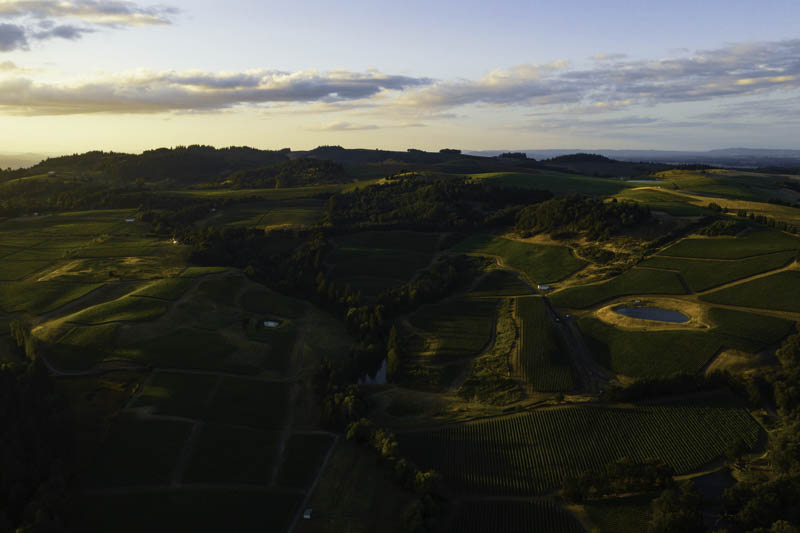
The housing market in Salem has a median sale price of $425,000 with a 16.6% year-over-year growth rate. Within the city of Salem, there are 42 neighborhoods — making it the third-largest community in the state of Oregon. The most affordable homes can be found in Southeast Salem with single-family homes priced from $225,000 to $408,000. The most expensive and sought-after homes are situated in West Salem with houses ranging from $365,000 to $1.1 million.
Some of the neighboring cities of Salem are Keizer, Hayesville, and Woodburn. The most affordable would be Keizer with houses priced as low as $259,900, followed by Hayesville with homes ranging from $349,000 to $500,000. The city of Woodburn offers a variety of options, as homes can be priced at $289,900, but can get as high as $1.2 million depending on the features and amenities offered.
What Leading Custom Home Builders and Architects that Serve the Salem Area Say
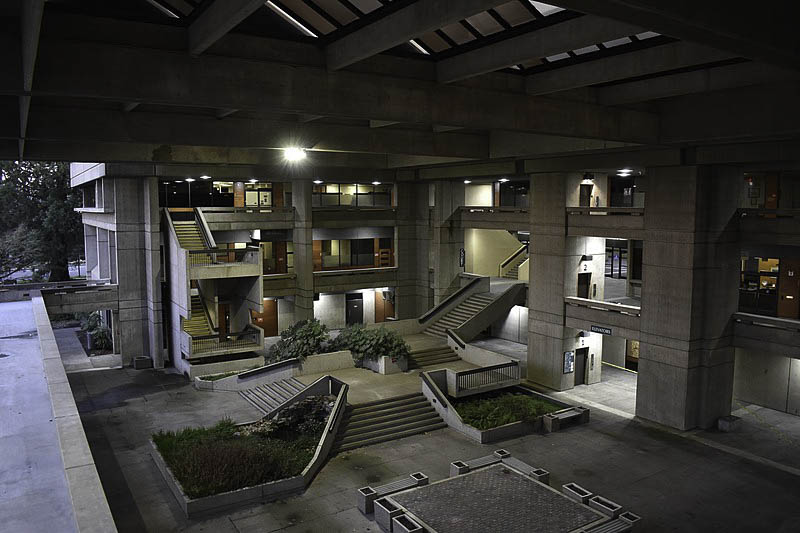
Based on the insight of general contractors in the area, building a house from the ground up can range anywhere from $200 to $400 per square foot. This does not include the land price, permits and other fees, and architectural fees, among other things. Surely, the total costs can pile up once all expenses have been computed together.
One of the general contractors who provide services in Salem is Mike Riddle Construction. The firm stated that pricing for costs mostly depends on the house design, amenities, and customization preferred by the homeowner. The firm used an analogy by saying “it’s like going to a car dealership and asking how much does a car weigh per pound.” The firm continued by saying that the answer “depend[s] on the car, amenities, etc”. The general contractor mostly advised heading to www.nahb.org for accurate and trustworthy estimates and updates regarding the home building industry.
The Future of Salem’s Residential Construction Industry
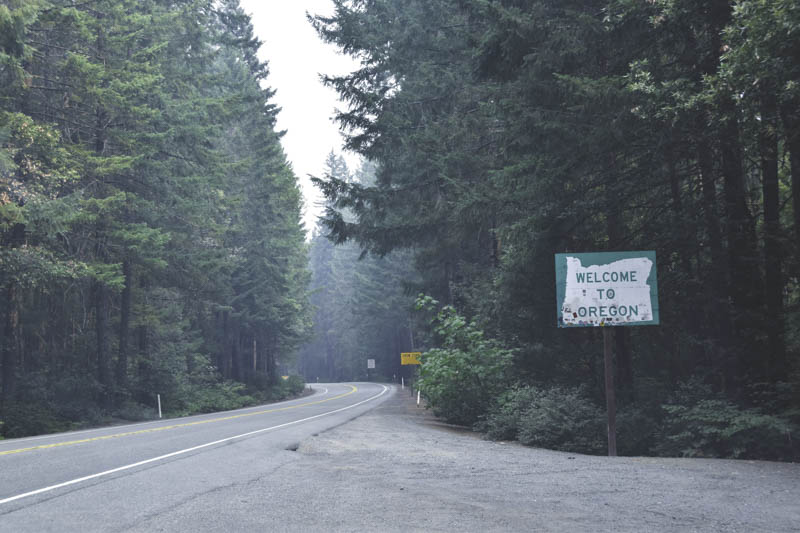
The city of Salem is expected to grow in population in the coming 15 years. In the past years, more people have been moving to the capital city of Oregon for affordable housing, job opportunities, and access to the great outdoors. In the next 15 years, the city is set to have an additional 60,000 new residents, and Salem is moving towards a population of 270,000 by 2035. With this projected population growth, the local government has updated the Salem Area Comprehensive Plan into the “Our Salem” project. The project is meant to guide the city in its future growth and support the community’s needs. The current residents of Salem are advocating for more affordable housing, neighborhoods with a variety of housing types, more small businesses in neighborhoods, and action towards climate change.
Affordable Housing
Salem is set for an affordable housing project that is expected to open at the beginning of 2024. As the construction costs continue to hike up due to the pandemic and shortage in the supply chain, the long-awaited Sequoia Crossings project has been delayed. The federal pandemic relief funding received by the Salem Housing Authority is amounting to $1.5 million. A portion of the fund has been allocated to the housing project that will offer 60 studio, one-bedroom, and two-bedroom apartments, located at 3120 Broadway Ave. N.E. It is the second project of the city after the successful completion of Redwood Crossings.
Sequoia Crossing will cater to individuals and families by providing apartment-style housing. The affordable housing will have laundry facilities, bicycle storage, a courtyard, and multiple office spaces. The complex is meant to help low-income citizens by fully subsidizing the rental costs through public assistance vouchers. The building of Sequoia Crossing opens an opportunity for more affordable housing in Salem in the coming years to help those who are in need of housing assistance.
Considering building a home in Salem, Oregon?
Contact us for a free consultation

